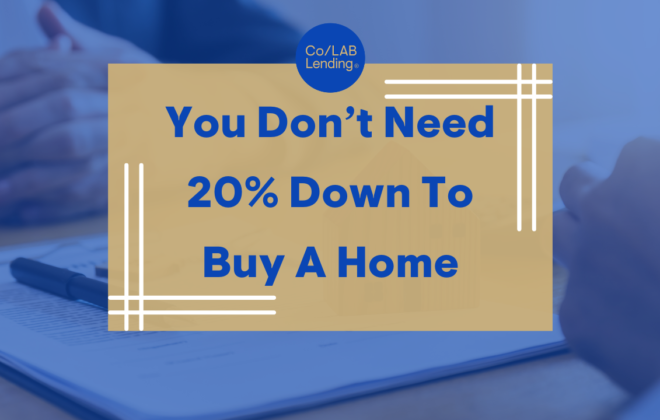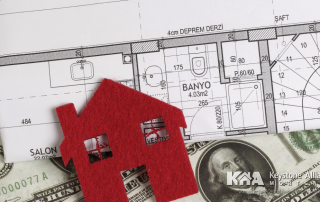Exploring Mortgage Options for Medical Professionals
Like many college graduates, medical students are buried in debt. In fact, the Association of American Medical Colleges reports that physicians leave school with a staggering average of $189,165 in the red.
While student loan debt may not “directly affect” your chances of getting approved for a mortgage, it can definitely limit your options. This is because in the lender’s eyes you’re seen as being a higher risk. However, medical students—despite having significantly higher debt than their undergraduate constituents—are viewed through a much different lens.
Why Mortgage Lenders Favor Medical Professionals
Even with some medical students graduating with nearly a quarter of million dollars in debt, banks and mortgage lenders see doctors as safe bets. At first glance, seeing as they have no money, no steady employment record, and they’re up to their stethoscopes in student debt, physicians seem to be riskier than nearly any other borrower.
However, in reality, the chances of physicians defaulting on a loan is incredibly low, teetering around the .2% mark. In comparison, the average single-family has around a 3-4% chance of defaulting on their residential mortgage.
For this reason, special mortgage products have been designed specifically for physicians. These options generally have low down payments (some have 0% down), no private mortgage insurance (PMI) requirement, surprisingly high borrowing limits (some exceeding a million dollars).
The Role of Future Earning Potential in Mortgage Approval
Banks and lenders are well aware of the income increase a new doctor might expect after residency ends. Considering this, they recalculate risk, debt, and the longevity of the loan accordingly. Many physicians are encouraged by lenders to enroll in a pay-as-you-earn program for student loan debt, so this may be factored into the equation. Income-based payment plans are capped around 10-15% of discretionary income (income after taxes, bills, and other mandatory charges).
What may be even more surprising is that some doctors need not show proof of income, only an employment contract. This added perk is great for doctors who are relocating to start their new jobs and want their home base to be locked down before they make their move.
Exploring Mortgage Options for Doctors
The mortgage products for doctors vary greatly. Some have a traditional-style 30 year fixed rate, while others have options more akin to ARMs or hybrid mortgages.
If you’re a physician who is in the process of purchasing a home, ultimately, your choice should be based on how long you’re expecting to stay in the home. If you’re going to be there for five to 10 years, an ARM could be your best option. On the other hand, if you’re looking at staying in the home for 10-30 years, the Conventional 80/10/10 or 80/15/5 can be your best option if you can take care of the home equity line of credit (HELOC) in short order.
It’s important to talk to your mortgage broker about what option is right for your individual set of circumstances. Moreover, even with all of these options, it’s important to remember that physicians’ mortgages are not always a surefire bet. If you have your sights set on a house that is outside of your means and a credit score that is less than perfect, there is still a fair chance you could be turned down for a mortgage.
Navigating the Down Payment Predicament
Many doctors leave med school eager to buy a home. They want to start building a life outside of work, and oftentimes a very nice home is the cornerstone of this prospective future. For this reason, young physicians often decide to skip the 20% down payment due to a lack of funds.
However, for example, let’s say you purchase a $500,000 home with no money down. In this case, you will likely end up paying nearly 300% more interest over the course of your loan. With a house at that price point, that could equate to nearly $250,000 (half the cost of the original price of the home).
That being said, if the interest is significantly higher on your college loans, credit cards, or any other payments, than it can be a good idea to hold onto your down payment and use those funds to zero out those balances first.
Upsides to Physician Mortgages
|
Downsides to a Physician Mortgage
|
If you’re interested in Physician Mortgages, contact Co/LAB Lending to learn more about our options and what we can do for you.
Mortgage Consultation Today!
Categories
- Credit (4)
- FHA Loans (3)
- Finances (3)
- First Time Home Buyers (6)
- Grab Bag (7)
- Home Technology (1)
- Homebuying Tips (17)
- Inspiration (1)
- Insurance (3)
- Interest Rates (3)
- Loan Process (1)
- Mortgage Financing (14)
- Motivation (1)
- News (1)
- Press Release (8)
- Renovation (2)
- Self Employed (1)
- Tips & tricks (1)
- Uncategorized (134)
- USDA Loans (1)
- VA Loans (2)




